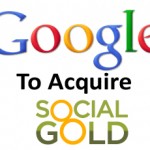 Paris — Over the weekend, search engine behemoth Google Inc., for the first time said that it will liberalize its trademark policy from next month, allowing advertisers in Europe to link their advertisements with their competitors’ trademarks when bidding for online ads in a move that will prevent big brand owners from controlling which ads appear during users’ searches.
Paris — Over the weekend, search engine behemoth Google Inc., for the first time said that it will liberalize its trademark policy from next month, allowing advertisers in Europe to link their advertisements with their competitors’ trademarks when bidding for online ads in a move that will prevent big brand owners from controlling which ads appear during users’ searches.
Following the updated policy change, disclosed at a news conference in Paris last week, which comes into effect on September 14, brings Europe into line with its AdWords policy in the US, Japan, the UK and dozens of other countries, follows the European Court of Justice’s ruling in March that Google is not infringing trademarks when it sells ads linked to keyword searches for a brand to one of the brand’s competitors.

(The spokesman of Google’s European advertising, Ben Novick poses on August 4, 2010 at the Google’s Paris office.)
Google’s trademark policy for Ireland, Britain and Canada will be attuned on September 14th to reflect changes implemented in the US last year.
Google, the world’s monumental search engine with a vast share of the search advertising market in Europe, says the September update will bring users more “relevant and helpful advertisements”.
Under the revised policy, Google will permit certain Irish advertisers — such as resellers and informational sites — to utilize the trademark of other businesses in the text of their online advert, even if they do not own that trademark or have explicit approval from the brand owner to use it.
Nevertheless, Google will not permit ads to be displayed if they utilize trademarks in a competitive, critical or negative way. The internet giant will continue to monitor ads on a case- by-case basis and will remove those ads that do not comply with its policies, according to Peter Fitzgerald, industry director at Google UK.
However, as Google trades its advertisements through a bidding system, the change is likely to make it more pricey for brand owners to display advertisements relating to their own products, by granting competitive AdWords bids from rivals.
The case, that was referred to the ECJ from the French courts, was brought against Google by a group of brand owners including luxury-goods group LVMH Louis Vuitton Moet Hennessy, which has argued that online sellers of counterfeit goods could use AdWords to sell fakes to people searching for their genuine goods. The European Court of Justice found that the practice did not amount to trademark infringement.
The matter remains sensitive one for advertisers, many of whom see Google’s approach as allowing rivals to trample on their copyright and hijack their investment in branding.
LVMH was not immediately available to comment on Google’s new policy.
The ruling authenticated the AdWords paid-search business at the core of Google’s $23 billion advertising operations as well as the way competitors like Yahoo! Inc. sell ads, while also giving brand owners a way to protect their trademarks.
Under Google’s present system for AdWords in Europe, brand owners could petition Google to remove ads that appeared next to and as part of the search results on their trademark.
For instance, Renault could demand Google to withdraw ads for car re-sellers or rival Peugeot that appear when an Internet surfer searches for Renault.
“Brand owners previously had a monopoly on the ad space,” said Yoram Elkaim, head of Google’s legal division in Europe.
Similarly, companies entering new markets or challenging deep-rooted competition will welcome Google’s rule change to give themselves increased visibility on one of the world’s biggest websites.
“The European Court of Justice has upheld our right to allow advertisers to bid for keywords corresponding to third party trademarks,” said Ben Novick, a Google spokesman. “This change enabled us to harmonize our policies across the world. Users will benefit by seeing more relevant ads following a search on Google.”
Fitzgerald, said the change had decreased the number of “overly generic ads that appear” in search results. “We believe the user experience is improved if, for example, they conduct a search for a particular brand of TV and see ads which give them more detail about where they can buy that particular brand of television, where they might be able to fix it, buy component parts or read reviews,” he said.
Alex Hoye, chief executive of Latitude, a digital marketing agency, remarked that Google had double motivations for the change: “Buyer experience will recuperate as buyers think in terms of brands, but this will increase prices and spend from retailers and re-sellers, which is good for Google.”
Google introduced the same policy in the US last year. The new rules bcomes effective on September 14.


